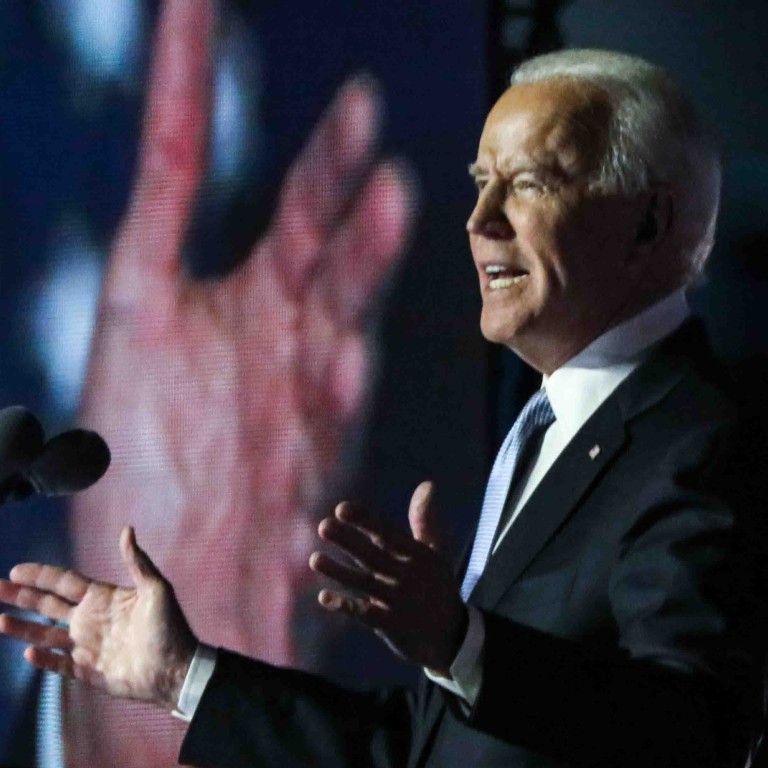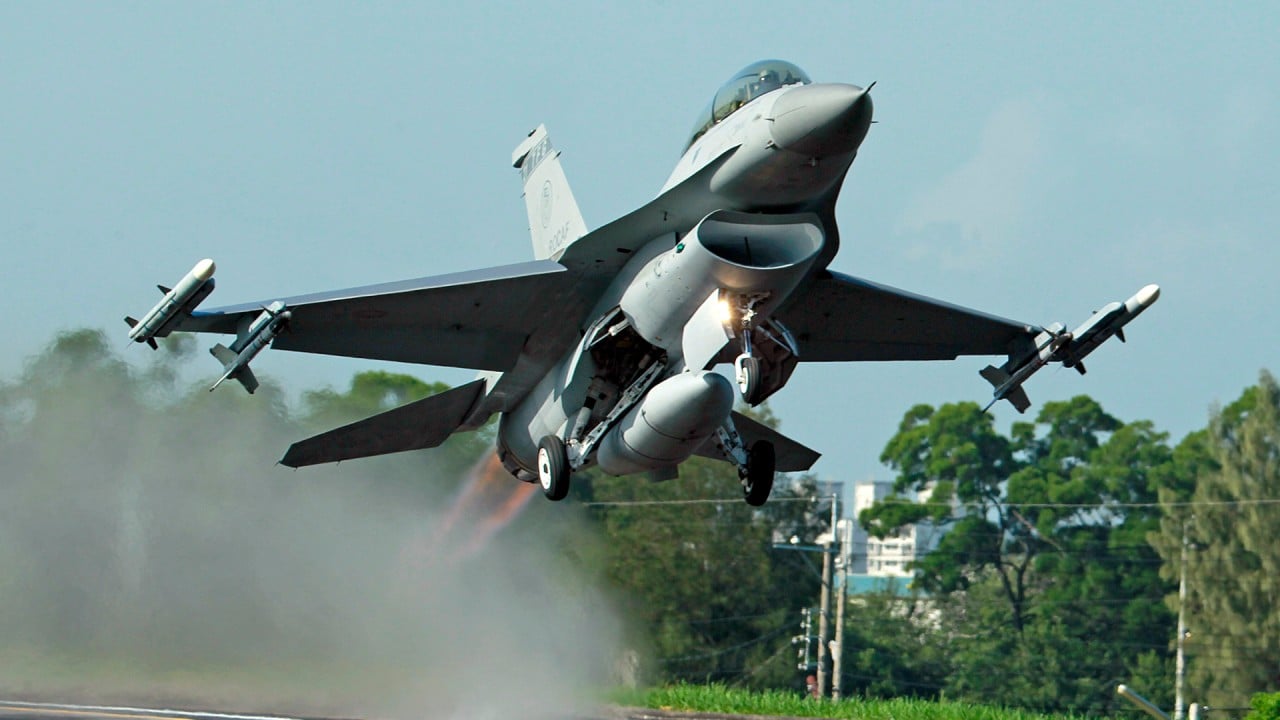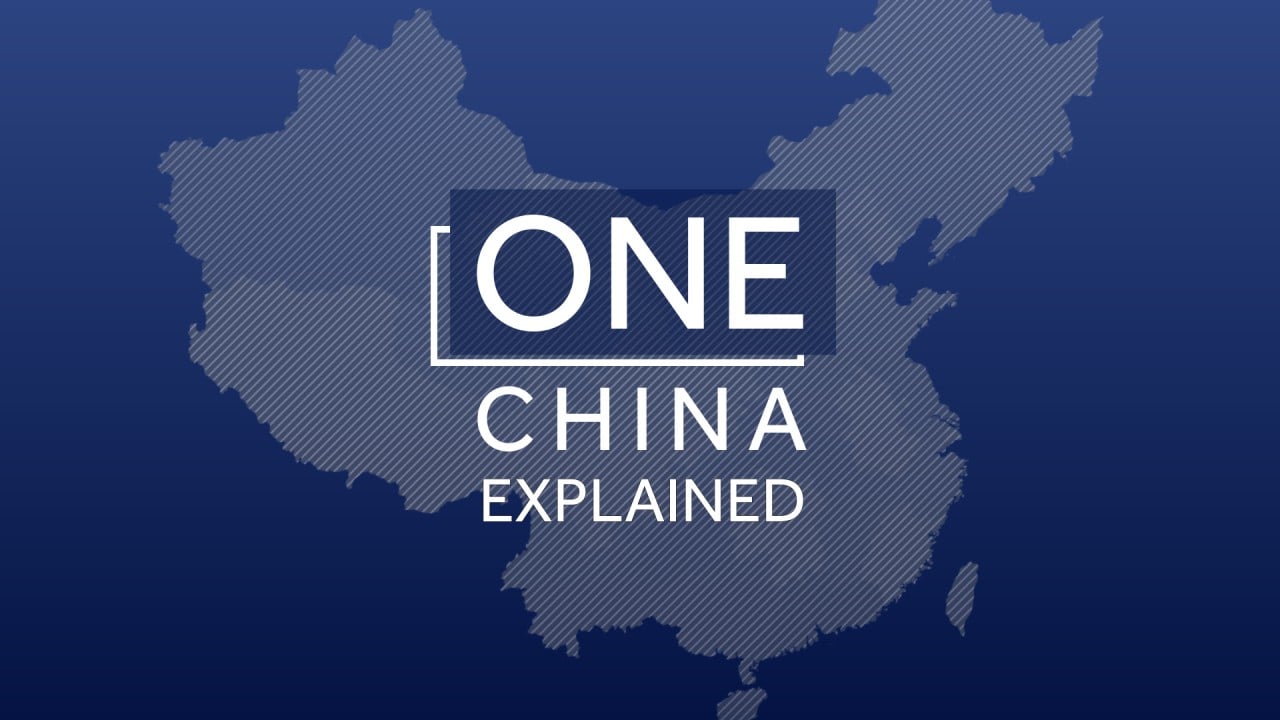
Taiwan sees opportunity for world stage push under Joe Biden-led US
- Analysts point to historic support for Taipei from the president-elect but also predict a slowdown in arms sales
- Less erratic and confrontational approach towards Beijing expected in new administration’s China policy
Chinese military threats and pressure against Taiwan, which Beijing regards as part of its territory, might ease if Biden tamps down as expected on the Trump administration’s erratic, confrontational policy towards China, analysts say. However, during the election Biden did attack China’s policies on ethnic minority groups in Xinjiang province as well as the Beijing-imposed national security law in Hong Kong.
Last week, as the vote count dragged on, Tsai assured the Taiwanese public – seen as pro-Trump for his tough stance toward Beijing – that relations would flourish because support for Taiwan had consensus backing in both the Democrat and Republican parties in the US.
Biden was one of 85 senators who voted for the Taiwan Relations Act that underscores the island’s relationship with the US after Washington switched diplomatic recognition from Taipei to Beijing in 1979. China has said Taiwan will eventually be reunited with the mainland, by force if necessary.
According to his statements over several decades, Biden opposes both a unilateral declaration of independence by Taiwan and any military attack on the island by mainland China. He supports the sale of military equipment to Taiwan for defence, but has opted for so-called strategic ambiguity on whether the US would send forces to aid Taiwan in the event of a Chinese attack. This policy allows the US to retain the option to use force to defend Taiwan, while not stating whether it would do so.

02:28
Washington’s US$1.8 billion arms sale to Taiwan is first weapons deal of its kind in over 40 years
But analysts note that US relations with China had markedly worsened under Trump on several fronts and that Biden’s views may have shifted as more leaders in the West raised concerns about the international goals of the Communist Party.
“Unlike his time as senator and as vice-president during Barack Obama’s administration, the anti-China sentiment has become much stronger in the US, and with the bipartisan support for Taiwan, Biden is expected to continue to back Taiwan,” said Lu Yeh-chung, a political-science professor at National Chengchi University in Taipei.
Lu cited Biden’s previous support for Taiwan to join the WHO as an observer, a move that Beijing opposes as part of its strategy to erode international support for Taiwan.

02:17
'One China’ explained
Former Taiwanese foreign minister Timothy Yang said a number of Taiwan-friendly bills introduced under Trump were likely to remain in place in the Biden administration. These include the Taiwan Travel Act and the National Defence Authorisation Act which allows high-level official visits and military exchanges.
Su Tzu-yun, a researcher at the government-funded Institute for National Defence and Security Research in Taipei, said the Trump administration had signed 10 arms deals with Taiwan worth more than US$15 billion and these would not change under the new administration as they had all been approved.
Su said he expected the pace of approvals for arms sales to Taiwan to slow down under Biden, but did not see this as adding to the risk of a military takeover of the island from the mainland. “In the next four years – or even in the next 10 years – the People‘s Liberation Army does not have full confidence of a decisive victory in the event of a military offensive against Taiwan,” he said.
Shi Yinhong, a professor from the School of International Studies at Renmin University of China, said he expected relations between Taipei and Beijing to remain tense. “As long as Tsai Ing-wen refuses to accept the one-China principle, Beijing is unlikely to resume talks or official exchanges with the island,” he said.
Additional reporting by Kristin Huang

